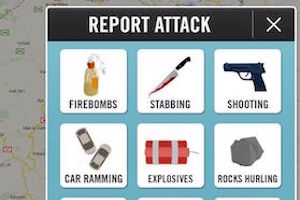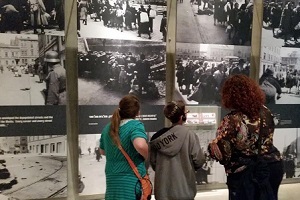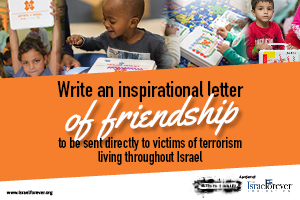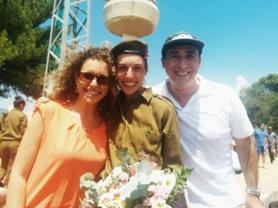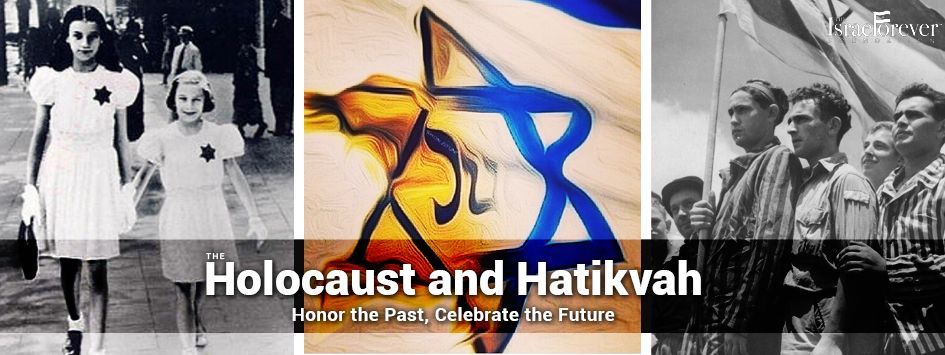Surviving Terror: Listening To Their Voices, Understanding Their Lives
No matter where or what the motivation – political, ideological, or personal – terrorism has a very real and direct impact on human rights, denying individuals the right to life, liberty, and physical integrity.
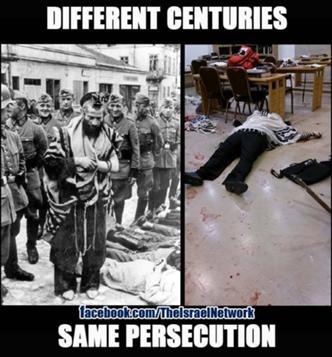
For the survivors who personally experience such attacks, terrorism threatens their existence, shatters their sense of coherence and meaning, and shakes the foundation of who they are; making them face their basic helplessness and mortality. Even for those who have never been directly impacted by a terrorist attack, the thought of such indiscriminate violence creates varying degrees of anticipatory anxiety, fears of future harm to oneself or loved ones, and functional impairments, such as refusal to leave their homes or ride public transportation.
For these survivors of terrorism and for the families of the victims who are left behind, the pain is always there…and for the world, it’s yet another example of man’s continuing inhumanity to mankind. Yet many who have suffered the trauma of terrorism have searched for and found meaning and purpose in their lives, bearing witness to the indomitable power of the human spirit to transcend and transform following tragedy.
As a trauma researcher and oral historian, I have listened to the voices – the words and the music – the manifest responses and the latent meanings – of survivors of highly challenging life experiences. I have learned from them about their lived experiences, their unique qualities and needs, and the strategies and resources that have helped them cope with their situations, rebuild their shattered assumptions about their own selves and their world, and move forward in life. And I have witnessed the power of telling their stories and of listening to their voices – the oral histories or testimonies of their lived experiences.
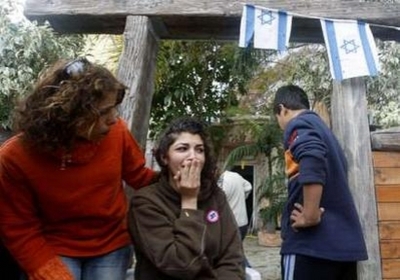
Telling their stories to an interested and empathic listener in a safe space can help most trauma survivors heal and move forward by gaining a better understanding of what has happened to them and discovering the meaning they take away from their experiences. As one survivor learned, “by talking about it, you demystify it, you sort of remove the poison from the fangs.”
As child psychologist and writer Bruno Bettelheim cautions, “What cannot be talked about can also not be put to rest; and if it is not, the wound continues to fester from generation to generation.”
In the aftermath of extreme experiences, coping for trauma survivors involves the arduous task of reconstructing their world to incorporate the traumatic experience. While they do not forget their traumatic experiences nor minimize their suffering, by giving voice to their lived experiences, over time, they are able to integrate and own the painful emotions of their situation, make them part of their story, and live with them in a productive way.
In struggling to make sense of the event, they are helped to realize a greater appreciation of what is really important and meaningful – like family, friends, and God – versus what is trivial. And as they create, tell, revise, and retell their stories, they discover their identities and may come to regard themselves “as survivors of terror, not as victims.”
But it is not enough for these stories to be told; they also must be listened to and heard. As Henry Greenspan learned from his interviews with survivors of the Holocaust, “the sufficient reason to listen to survivors is to listen to survivors. No other purpose is required.” However, listening to their stories also affords us historic memory and connection, as author Chaim Potok wrote: “Without stories there is nothing. Stories are the world’s memory. The past is erased without stories.”
Thus, survivor stories help to personalize and contextualize historical events, humanize the people who have survived or perished, and establish real faces in the overwhelming sea of facts and statistics. And in hearing their stories, supportive others, including families, friends, clinicians, counselors, employers, and communities, can gain valuable insights for helping the survivors through and after the recovery process.
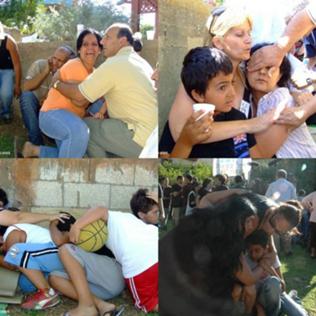
In retelling their stories, we also build public awareness of the impact of such traumas, “showing them that there is life after the terror act and that life is not finished.” In addition, we provide the empirical evidence for advocacy, reform, and interventions that could not only mitigate the negative effects of these horrific traumatic events, but also help foster more positive, long-term adaptations for the survivors.
Through their stories, we also bear witness. As so eloquently expressed by Elie Wiesel, Holocaust survivor, Nobel Poet Laureate, and Founding Chairman of the U.S. Holocaust Memorial Museum, we must remember the past and our responsibility to the future: “For the dead and the living, we must bear witness.” By continuing to tell all survivor stories, we celebrate their lives as people – as human beings – not simply as players in a larger story or as numbers – and we remember what is possible in the dark depravity of man’s souls.
So please keep on reading the stories, listening to the voices, and remembering the lives of these and other remarkable survivors. As another survivor of terrorism and a bereaved husband tells us “Even though it is my life, the story is an interesting story. It has everything in it. There is death, there is love, and there is hope.” These stories are moving, heartbreaking, painful, and, for some of you, they may even be overwhelming; but they are also inspiring and informative and will give you food for thought and action.
You may learn how to support survivors on their journey to recovery and beyond, and how to prevent suffering for others. Most importantly, their stories may help guide you through dark period in own your life.
In addition to my book "Living Beyond Terrorism: Israeli Stories of Hope and Healing", you might also read about other inspiring true-life stories of courage and hope in the following books:
- Bauman, Jeff. Stronger [Boston Marathon]
- Cole, Leonard A. Terror: How Israel Has Coped and What America Can Learn
- Feuerstein, Marie Therese. Burning Flowers, Burning Dreams: Consequences of Suicide Bombings on Civilians in Israel, 2000–2005
- Gavron, Daniel. The Other Side of Despair: Jews and Arabs in the Promised Land
- Gordis, Daniel. Coming Together, Coming Apart: A Memoir of Heartbreak and Promise in Israel
- Gordis, Daniel. If a Place Can Make You Cry: Dispatches from an Anxious State
- Gordis, Daniel. Saving Israel: How the Jewish People Can Win a War That May Never End
- Harris-Gershon, David. What Do You Buy the Children of the Terrorist Who Tried to Kill Your Wife? A Memoir of Jerusalem
- Kelly, Mike. The Bus on Jaffa Road: A Story of Middle East Terrorism and the Search for Justice
- Konvisser, Zieva Dauber. Living Beyond Terrorism: Israeli Stories of Hope and Healing
- Kuriansky, Judy, ed. Terror in the Holy Land: Inside the Anguish of the Israeli-Palestinian Conflict
- Mandell, Sherri Lederman. The Blessing of a Broken Heart
- Meotti, Giulio. A New Shoah: The Untold Story of Israel’s Victims of Terrorism
- Rabinowitz, Dan, and Khawla Abu-Baker. Coffins on Our Shoulders: The Experience of the Palestinian Citizens of Israel
- Rosenthal, Donna. The Israelis: Ordinary People in an Extraordinary Land
- Wiemer, Liza M., and Benay Katz. Waiting for Peace: How Israelis Live with Terrorism

Zieva Dauber Konvisser, PhD, is a Fellow of the Institute for Social Innovation at Fielding Graduate University. Her research focuses on the human impact of traumatic events, such as terrorism, genocide, war, and wrongful conviction. She served on the National Commission on American Jewish Women and is currently on the international board of the Israel Center for the Treatment of Psychotrauma and the advisory board of Strength to Strength. She is the author of "Living Beyond Terrorism: Israeli Stories of Hope and Healing" (Gefen, 2014). The book can be ordered HERE.
Republished with permission from author.
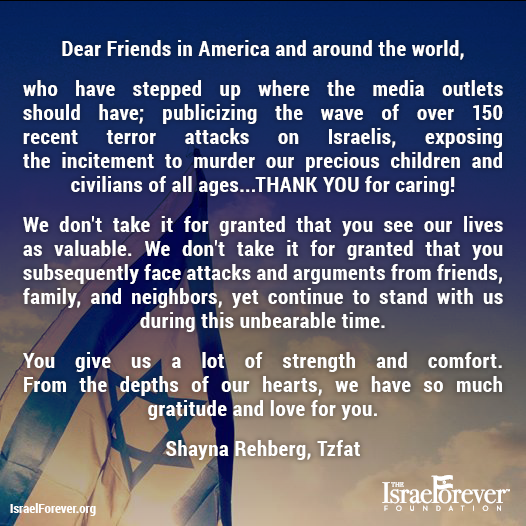
Recommended:
HONOR THE PAST. CELEBRATE THE FUTURE.
Discover our collection of Stories, Reflections and Memorial Ceremonies today!
About the Author


